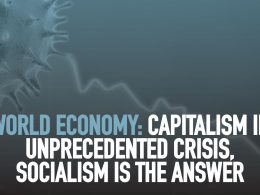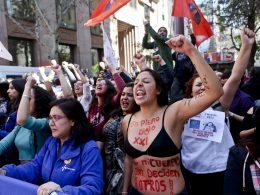On 6 May elections took place in Greece, France and Germany that dramatically showed the mass opposition to austerity across the continent and has put the viability of the Austerity Treaty in question.
The Irish political and business establishment have been desperately trying to spin these results to diminish their significance and even to claim them as an endorsement of their failed policies. This was most clearly seen in a near comical scene reminiscent of Charlie Haughey’s dash to Paris to claim the glory of Stephen Roche’s victory in the 1987 Tour de France, Eamon Gilmore scrambled to Paris to try to attend the victory celebrations of France’s new President, François Hollande.
Hollande and his party are a party of big business that has no qualms about making ordinary people pay for the crisis. However, in the course of the campaign he tapped into the massive anger against austerity policies to gain support and even went as far as calling for a renegotiation of the Austerity Treaty. His election and the defeat of Sarkozy is therefore a distorted reflection of this anger in French society against austerity policies.
Nowhere was the anti-austerity mood reflected more clearly demonstrated in these elections than in Greece. The two main establishment parties which supported the troika were annihilated in the polls while the anti-austerity radical left coalition Syriza quadrupled its vote becoming the second biggest party in the country.
The 6 May also saw the defeat of Angela Merkel’s CDU in a regional election in northern Germany and just a few days previously the ruling British Tory / Lib Dem coalition was routed in local elections.
These election results are a reflection of the mass anger and opposition to the austerity policies being implemented throughout the EU. Alongside this electoral expression there have been massive general strikes in Belgium, Spain, Portugal as well as governments toppling in Romania and the Netherlands on the question of the implementation of austerity measures in recent months.
With the viability of the Austerity Treaty now being called into question, some EU leaders are now talking about growth and investment. Mario Draghi, President of the European Central Bank, fresh from gifting €1,000 billion to EU banks to speculate on the bond markets, even went as far to say that he “sympathised with Europeans suffering in the crisis”.
EU leaders will now hold an emergency summit on 23 May to discuss putting together a “growth pact”. Any such pact will be no more than window dressing to give the impression that they are interested in improving the lives of the millions suffering under austerity.
In their warped neo liberal vocabulary “growth measures” has a very different meaning to what the vast majority of people would mean. For example, Draghi’s solution to the problem of youth unemployment is to slash the pay and conditions of older workers and deepen precarious conditions in the labour market. This is more of the same and will make the crisis even worse.
The Yes side in Ireland are desperately trying to say that rejecting this treaty would isolate Ireland from the rest of Europe. The recent elections and the mass movements against austerity across the continent show that a No vote would not leave us isolated. Millions of people across Europe are actively opposing the policies that attempt to make ordinary people pay for the crisis of capitalism. By saying No it would put us at the centre of a struggle for a different type of Europe, a Europe where it is the interests of the millions and not he millionaires that are put first.












